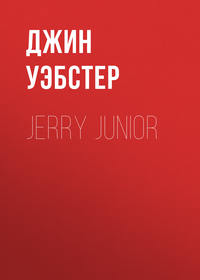Sadece Litres'te okuyun
Kitap dosya olarak indirilemez ancak uygulamamız üzerinden veya online olarak web sitemizden okunabilir.
Kitabı oku: «Jerry Junior», sayfa 7
Bir şeyler ters gitti, lütfen daha sonra tekrar deneyin
5,0
2 puan
Türler ve etiketler
Yaş sınırı:
12+Litres'teki yayın tarihi:
20 temmuz 2018Hacim:
140 s. 1 illüstrasyonTelif hakkı:
Public Domain